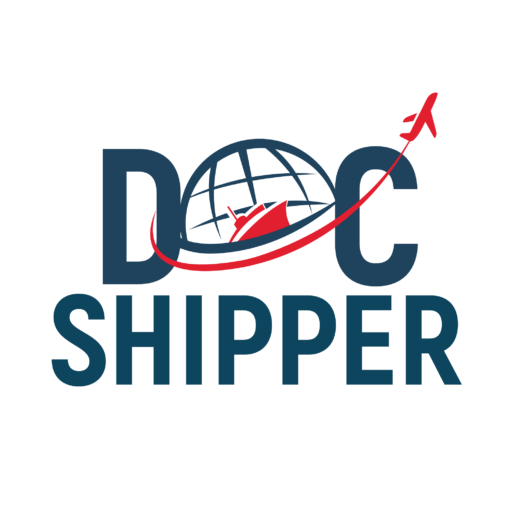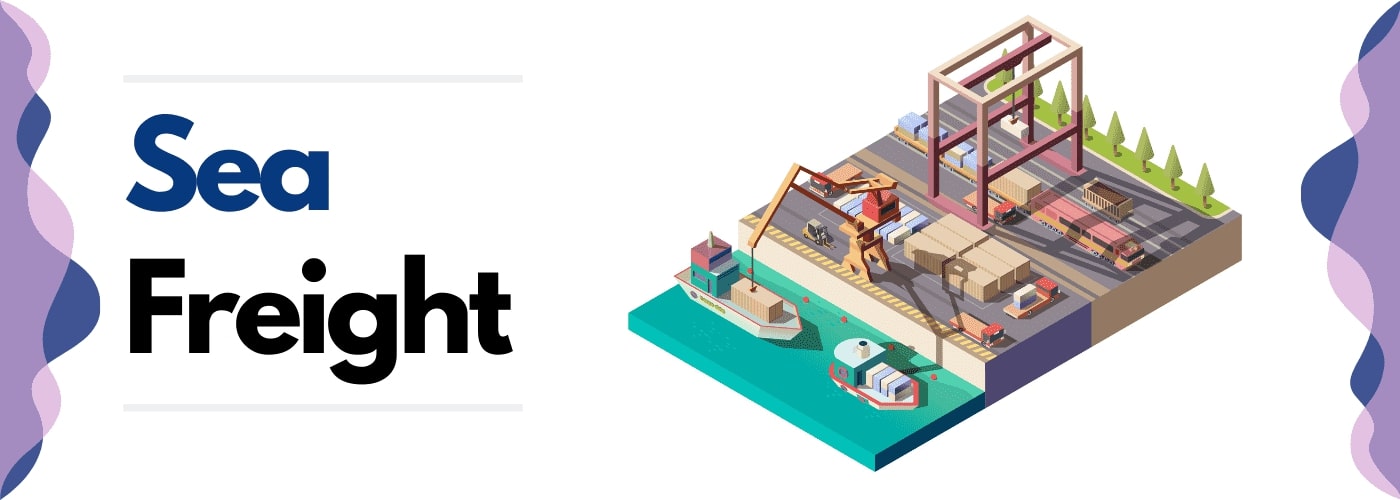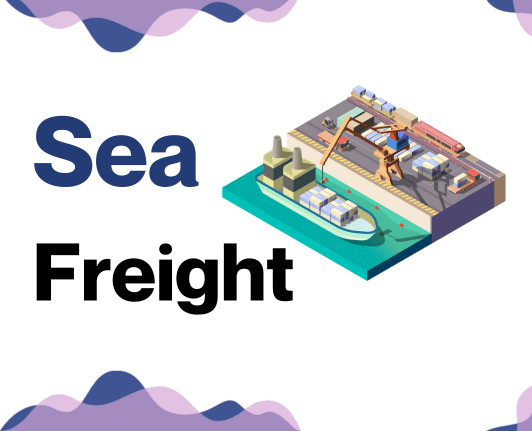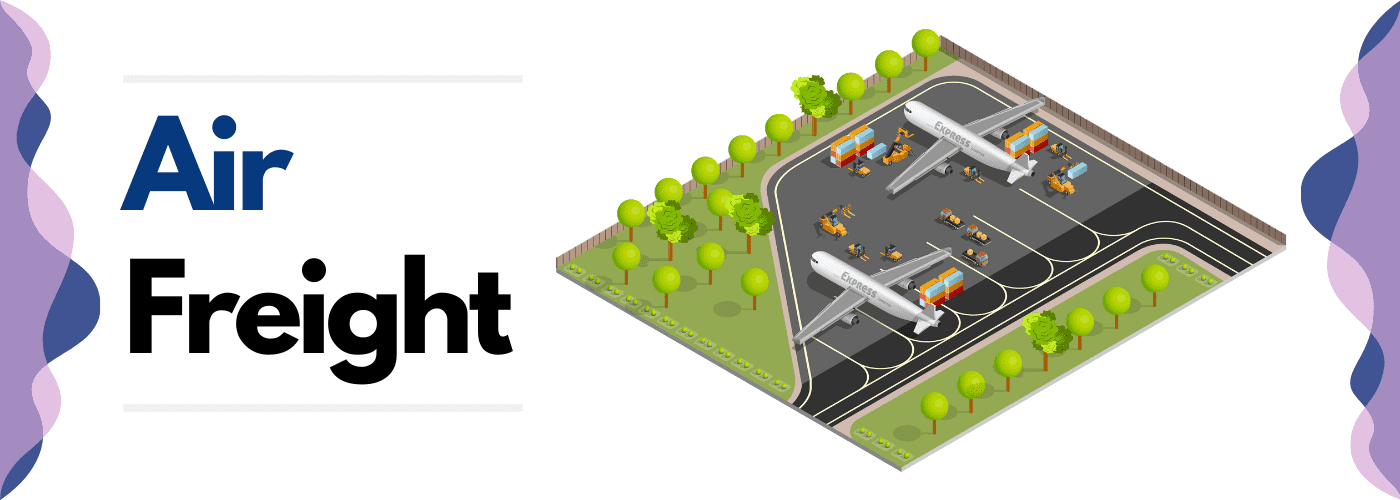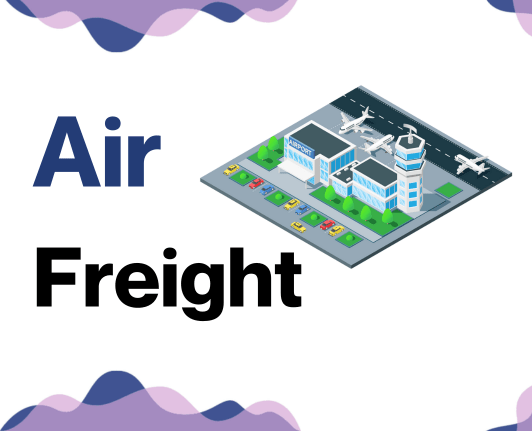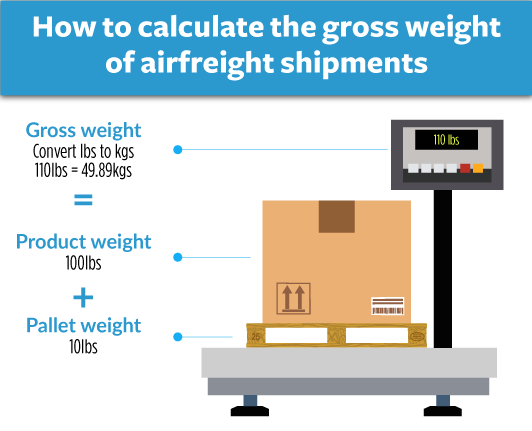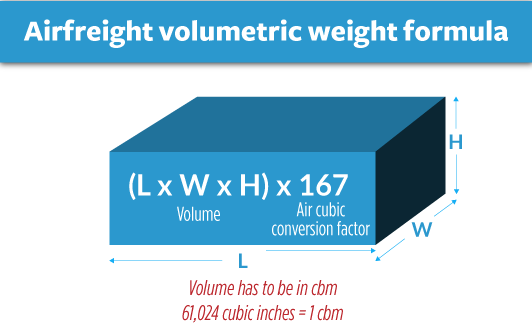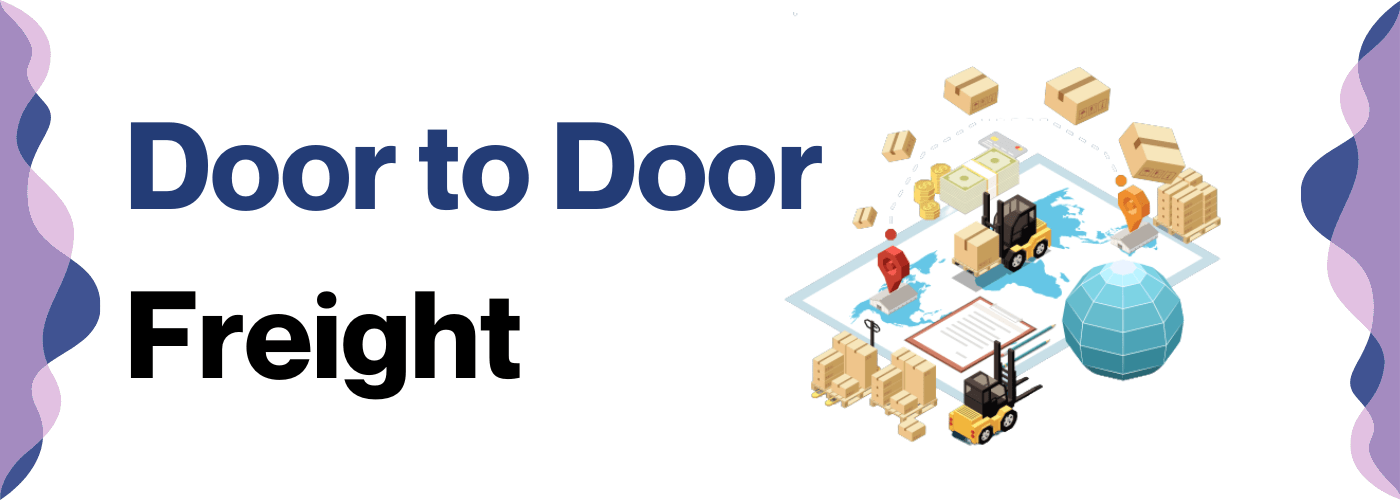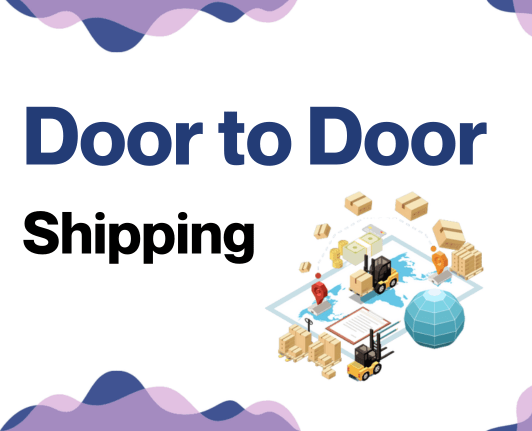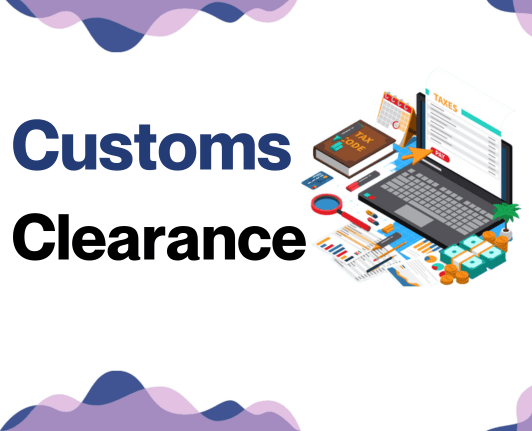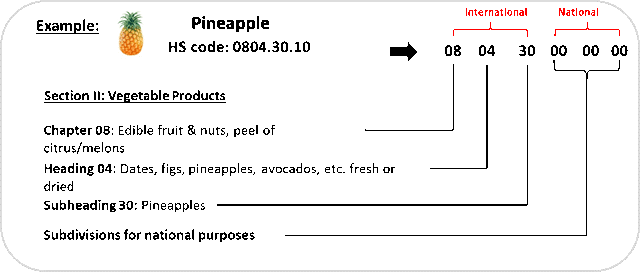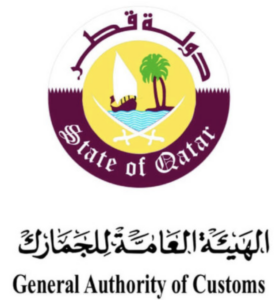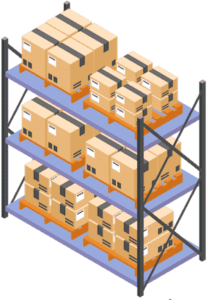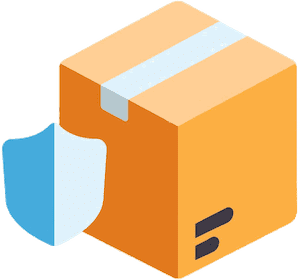Did you hear about the shipment that left Nigeria with a sense of humor?
It arrived in Qatar laughing at customs challenges. Jokes aside, we understand you find it hard to crack the code of shipping goods between Qatar and Nigeria—understanding rates, transit times, or the confusing customs regulations. This comprehensive guide was made just for you; it dives into every detail you need to know—from different types of freight options like air, sea, road, or rail, to customs clearance processes, duties, and taxes. It’s filled with tailored advice that businesses like yours will find incredibly handy. If the process still feels overwhelming, let DocShipper handle it for you! As your trusted international freight forwarder, we manage every step of the shipping process, turning your shipping challenges into a seamless global business success.
Table of Contents
Which are the different modes of transportation between Qatar and Nigeria?
Diving into the world of freight, choosing the right transport between Qatar and Nigeria can seem like an arduous task. Think about it - it's like choosing a car; most options will get you there, but the right choice depends on your specific needs. With vast sea paths and multiple flights, air and sea freight take center stage. Each offers unique perks, much like a minivan and a sports car! Ultimately, understanding the geography and aligning it with your shipping needs holds the key to unlock your best transport solution.
How can DocShipper help?
Shipping goods from Qatar to Nigeria? A daunting task made easy with DocShipper! Let us shoulder the burden of logistics, customs, and administration. Get expert help with swift, hassle-free service tailored for your unique needs. Don't delay, connect with us today for a free estimate within 24 hours, or a no-obligation chat with our consultants. Your successful shipping voyage starts here!
DocShipper Tip: Sea freight might be the best solution for you if:
- You're dealing with hefty quantities or large-scale goods. Sea freight is your go-to for maximizing space without stretching your budget.
- Your cargo doesn't have an urgent deadline, as sea freight typically has longer transit times compared to air or rail.
- Your shipping routes are between major ports, allowing you to leverage the extensive global network of sea shipping lanes.
Sea freight between Qatar and Nigeria
Qatar and Nigeria share a vibrant trade relationship, with ocean shipping playing a vital role in connecting Doha's Hamad Port and Lagos's Apapa Port. As major industrial hubs, these ports often buzz with high-volume goods moving in container ships. While sea freight is slower, it offers a cost-effective solution when sending bulk shipments.
However, the journey between these two nations isn't always smooth sailing for shippers and businesses. Misunderstandings around customs regulations, documentation errors, and many other mistakes can transform shipping activities into a complex labyrinth that seems difficult to navigate.
But don't worry, it doesn't always have to be as tricky as solving a Rubik's cube. Understanding the shipping routes, knowing the customs processes, and adhering to local laws can often pave a smoother path for your cargo. This guide will be your much-needed map, enlisting best practices and explicit specifications to make shipping between Qatar and Nigeria a breeze. Let's embark on this maritime journey together, avoiding the whirlpools and aiming for smoother seas.
Main shipping ports in Qatar
Hamad Port
Location and Volume: Located on Qatar's southeast coast in the Umm Al Houl area, Hamad Port plays a pivotal role as it diversifies from an oil and gas-based economy. With a shipping volume of over 2 million TEUs, the port is a major node in the global shipping network.
Key Trading partners and Strategic Importance: Hamad has strategic importance as it is intended to diversify Qatar's sources of income. Key trading partners are primarily Asian economies including China, India, and South Korea. The port also acts as a major transhipment hub, connecting to 40 international ports.
Context for Businesses: If you're planning to expand your business in the Middle Eastern markets, the services offered by Hamad port can be a significant asset. By working with the port via its well-known Hamad Port Project, you can connect with the growing and evolving market of Qatar and access the wider Middle East region.
Other ports in Qatar are mainly used for either the military or oil/gas transport (such as Ras Laffan and Mesaieed), and they aren't typically accessible for general cargo needs. Hamad is certainly Qatar's main international shipping port and is the one that should be considered by businesses looking to export to or import from Qatar. Please note that this information changes quite often due to the dynamic nature of international trade and logistics. Always check on the port's official website for the most up-to-date information.
Main shipping ports in Nigeria
Port of Lagos
Location and Volume: Located in Apapa-Wharf Road, Apapa, Lagos, this port is essential for being the largest and busiest seaport in Nigeria, boasting a shipping volume of over 21 million metric tonnes per year.
Key Trading Partners and Strategic Importance: The Port of Lagos handles the majority of the country's cargo and maintains trade relations with countries all over the world, with China, the United States, and India being its key trading partners. It’s a crucial gateway for landlocked neighboring countries and an international shipping hub in West Africa.
Context for Businesses: If you're looking to distribute goods throughout Western Africa, the Port of Lagos should be a prominent consideration given its high shipping volume and broad trading partnerships, making it ideal for businesses seeking expansive market reach.
Tincan Island Port
Location and Volume: Situated in Badagry Way, Tincan Island, Lagos, this port offers a unique blend of accessibility and high shipping volume with a capacity of handling 840,000 TEU annually.
Key Trading Partners and Strategic Importance: Tincan Island Port also serves an international clientele and plays a significant role in Nigeria's oil export, solidifying ties with petroleum-importing countries worldwide. It also hosts several customs licensed clearing and forwarding agents providing efficiency for import and export businesses.
Context for Businesses: For businesses dealing with oil or petroleum-based goods, Tincan Island Port can serve as a critical juncture in their supply chain given the port's emphasis on petroleum shipment, leading to simplified customs procedures and potential cost savings.
Calabar Port Complex
Location and Volume : Located in Cross River State, the Calabar Port Complex is a multi-purpose port handling general cargo with a strong focus on bulk and break-bulk items. It has a pretty high shipping volume of over 2 million metric tonnes annually.
Key Trading Partners and Strategic Importance: Serving as a significant import gateway, it is instrumental in accommodating trade with Nigeria's key trading partners, including China and other East Asian economies.
Context for Businesses: If your primary goal is to import from East Asia, particularly bulk items, leveraging the high capacity and location of the Calabar Port Complex can enhance your logistics strategy for efficient deliveries.
Onne Port Complex
Location and Volume: The Onne Port Complex, situated in the oil-rich Rivers State servicing the Niger-Delta, is a major hub for oil exports handling over 2 million TEUs annually.
Key Trading Partners and Strategic Importance: This port primarily focuses on the oil sector, servicing key oil-importing economies, though it also plays a significant role in Nigeria's import and export trade.
Context for Businesses: Businesses in the oil sector or those taking advantage of Nigeria's crude oil exports might find the Onne Port Complex inherently beneficial owing to its specialized infrastructure and proximity to the oil-producing region.
Delta Port
Location and Volume : Delta port, Warri, is a natural dock positioned favorably on the Warri River. The port is able to handle around 7,000 tonnes of bulk cargo amongst other forms annually.
Key Trading Partners and Strategic Importance: The port has key trading relationships with Asian and European economies, handling a wide variety of goods from crude oil to agricultural bulk.
Context for Businesses: For businesses trading in bulk commodities or seeking to engage with multiple trading economies, Delta Port’s location and capabilities offer valuable advantages.
Rivers Port Complex
Location and Volume : Rivers Port in Port Harcourt is located along Okrika Mainland, and one of the smaller ports in Nigeria, it handles a mix of general cargo and bulk items.
Key Trading Partners and Strategic Importance: The port has many trading partners, ensuring a diversity of imported goods from Europe and Asia, and it is strategically important due to its capability to handle multiple goods types.
Context for Businesses: This port is recommended for businesses involved with diverse general cargo, given the port’s flexibility and diversity to handle a range of goods from different sectors, providing a reliable stream for various inbound and outbound freight.
Should I choose FCL or LCL when shipping between Qatar and Nigeria?
Choosing between Full Container Load (FCL) or Less Container Load (LCL), familiarly known as consolidation, poses an important decision for shipping from Qatar to Nigeria. How you tip the scale can greatly affect your shipping price, delivery timeframe, and overall success. It's far from a one-size-fits-all scenario but requires a strategic approach, keen on your specific needs. Understanding the nitty-gritty of these options opens doors to a smoother, more cost-effective shipping experience. Let’s unfurl these possibilities and tailor your shipping operations bright and right.
LCL: Less than Container Load
Definition: Less than Container Load (LCL) shipment is a consigning method where multiple shippers share space in a single container for shipping goods. This approach is best for smaller shipments and offers a cost-effective solution compared to Full Container Load (FCL).
When to Use: LCL is the preferred option when your cargo volume is less than around 13 to 15 cubic meters. It's the go-to solution when you have flexibility in delivery time and are keen on saving costs.
Example: For instance, if your Doha-based textile company needs to transport 10 cubic meters of fabrics to Lagos but doesn't want to pay for unused space in a full container, LCL shipping is your best bet. Your goods will be consolidated with shipments from other businesses to make full use of the container space.
Cost Implications: While LCL shipments tend to be more affordable due to the sharing of container space, these savings can be offset by additional handling charges for consolidation and deconsolidation. However, overall, the cost implications remain positive compared to shipping small volumes by FCL. This option allows you to optimize your shipping costs and only pay for the space you use, making LCL freight a sensible choice for smaller volume cargos.
FCL: Full Container Load
Definition: FCL, or Full Container Load, is a type of ocean freight service where an entire container is dedicated to a single consignment. This means goods from one consignor are shipped in one container.
When to Use: If you're shipping more than 13/14/15 CBM of goods, FCL could be more cost-effective. It's also a safer method as the fcl container remains sealed from origin to destination, reducing the risk of damages.
Example: If you're a car parts manufacturer in Qatar shipping 200 transmissions (roughly a 20'ft container load) to a plant in Nigeria, you'll likely use the FCL method. It keeps high-value items safe, ensures they ship together, making tracking and managing easier.
Cost Implications: One benefit of FCL shipping is that the cost per unit is often less than with LCL shipping when you have a high volume of goods. You'll also have a simpler, quicker customs clearance process which saves you time. For an exact FCL shipping quote, you'll need to get a custom quote based on your specific requirements, like the number of 20'ft or 40'ft containers needed.
Unlock hassle-free shipping
Shipping between Qatar and Nigeria can be a complex task. DocShipper, your trusted freight forwarder, aims to simplify the process and make shipping fuss-free for you. Whether you need consolidation or a full container, our ocean freight experts are here to assist. Considering essential factors like volume, budget, and delivery times, we'll help determine the most cost-effective and efficient solution. Ready to make your shipping hassle-free? Reach out to us for a free estimation and let's guide your cargo to its destination.
How long does sea freight take between Qatar and Nigeria?
Sea freight, the popular option for shipping large volumes, between Qatar and Nigeria typically takes an average of 25-35 days. Keep in mind these transit times are estimations and can be influenced by factors that include specific port use, the weight of the goods, and their nature. For more precise timelines tailored to your specific needs, engaging a professional freight forwarder, such as DocShipper, is highly recommended.
Moving on, we’ve summarized the estimated transit times between the main sea freight ports. Please note that the actual journey may be slightly shorter or longer, hence we advocate for professional freight forwarder consul.
| Qatar Ports | Nigeria Ports | Average Transit Time |
| Port of Hamad | Tin Can Island Port | 14 to 21 |
| Port of Hamad | Apapa Port | 12 to 18 |
| Port of Doha | Tin Can Island Port | 14 to 21 |
| Port of Doha | Apapa Port | 12 to 18 |
*Note: This is a rough estimate, and actual transit times may vary.
How much does it cost to ship a container between Qatar and Nigeria?
Grasping the shipping cost from Qatar to Nigeria requires a broad price perspective. Ocean freight rates, for instance, may swing vastly per CBM due to fundamental factors. These include the Point of Loading, Point of Destination, chosen carrier, nature of goods, plus the market's monthly ebbs and flows. Indeed, there's no one-size-fits-all cost, yet that's where our strength lies. Our shipping specialists shine in their customized approach, trimming costs and optimizing logistics for your specific needs on a case-by-case basis. Rest easy knowing we're committed to creating a tailor-made quote, offering you the best value.
Special transportation services
Out of Gauge (OOG) Container
Definition: An OOG container or Out of gauge cargo is designed to carry and transport cargo that can't conform to the dimensions of standard containers due to their length, height, or width. These are popular for large-scale legal shipments.
Suitable for: Large, awkwardly shaped or oversized cargo that doesn't fit into standard containers.
Examples: Large machinery, construction materials, industrial equipment, and large vehicles.
Why it might be the best choice for you: If your business frequently ships unusually large or irregularly shaped products, using an OOG container removes the hustle of trying to fit everything into conventional containers.
Break Bulk
Definition: Break bulk involves the transportation of cargo as separate pieces rather than consolidated in a container. These goods are loaded individually onto the shipping vessel.
Suitable for: Large items that are too big or awkwardly shaped to fit into standard shipping containers, and too small to warrant an OOG container.
Examples: Construction equipment, windmill propellers, turbines, and other oversized items.
Why it might be the best choice for you: It's perfect if you are shipping large pieces that can withstand exposure to weather since they are shipped without a container.
Dry Bulk
Definition: Dry bulk refers to the shipping of loose cargo load, commodities like grain, coal, and gravel, that are transported unpackaged in large quantities.
Suitable for: Raw materials that have a homogenous nature.
Examples: Coal, grains, metals, cement, and sand.
Why it might be the best choice for you: Dry bulk is advantageous if your business primarily deals with solid raw materials and looking for cost-effective ways to ship them in large volumes.
Roll-on/Roll-off (Ro-Ro)
Definition: A Ro-Ro vessel refers to a Roll-on/Roll-off ship designed for carrying wheeled cargo, which can be driven on and off the vessel.
Suitable for: Vehicles and machinery that rolls, including cars, trucks, semi-trailer trucks, trailers, and mobile homes.
Examples: Cars, bulldozers, railway cars, or any wheeled machinery/equipment.
Why it might be the best choice for you: If your business involves the shipment of vehicles or wheeled machinery, Ro-Ro allows the cargo to be driven on/off the ship, reducing loading/unloading times and costs.
Reefer Containers
Definition: Refrigerated containers, better known as 'reefers', are used in intermodal freight transport, keeping goods at a low and constant temperature during the entire transportation process.
Suitable for: Perishable goods, including fruits, vegetables, meat, dairy products, and pharmaceuticals.
Examples: Fresh produce, seafood, frozen food, pharmaceuticals, and flowers.
Why it might be the best choice for you: If your business involves shipping perishable products, a reefer container will ensure your product reaches its destination in optimal condition.
For all your shipping needs between Qatar and Nigeria, whether they range from Out of Gauge to reefer containers, DocShipper can deliver. Contact us today for a free shipping quote that provides dependable transportation within 24 hours.
DocShipper Tip: Air freight might be the best solution for you if:
- You're up against the clock or have a non-negotiable delivery date. Air freight is your fastest bet for meeting tight timelines.
- Your shipment is on the smaller side, falling below 2 CBM. Air freight is particularly well-suited for compact cargo loads.
- Your goods are destined for locations that aren't well-served by maritime or rail options. Air freight expands your reach by connecting you to a vast array of international airports.
Air freight between Qatar and Nigeria
When it comes to fast and reliable shipping between Qatar and Nigeria, nothing beats the speed of air freight. Imagine it's like a courier of the global trade; swift and efficient. It's perfect for small, valuable items - say, electronics, pharmaceuticals, or urgent documents - that need to get there in a snap. But many shippers tumble into common pitfalls which may cause them to overpay. One critical mistake is incorrectly estimating the shipment's weight - think of it as like trying to stuff an elephant into a suitcase! Also, often, shippers lack essential best practices that could save them a bundle. Stick around - we will break this all down, making your air freight experience smoother and more cost-effective.
Air Cargo vs Express Air Freight: How should I ship?
Unsure whether to opt for Air Cargo or Express Air Freight for your shipment from Qatar to Nigeria? Let's break it down in layman's terms - Air Cargo is like snagging a seat on a commercial airline, while Express Air Freight is like having your own private jet. Your decision hinges on the urgency of your delivery, the value of your goods, and your available budget. Let's dig into the specifics to help you make the right choice for your business.
Should I choose Air Cargo between Qatar and Nigeria?
Choosing air cargo for shipments between Qatar and Nigeria offers cost-effectiveness and reliability. Airlines like Qatar Airways or Arik Air dominate this route. Although transit times may be longer due to fixed schedules, air cargo becomes more attractive for shipments exceeding 100/150 kg (220/330 lbs). If budget considerations are paramount, this mode of freight might be your best bet!
Should I choose Express Air Freight between Qatar and Nigeria?
When shipping cargo less than 1 CBM or below 100/150 kg (220/330 lbs) between Qatar and Nigeria, utilizing express air freight is an ideal choice. This specialized service deploys dedicated cargo planes, excluding passengers, to deliver goods swiftly. Companies such as FedEx, UPS, or DHL are renowned for providing such services. With their vast network and quick processing time, your cargo can arrive faster, improving overall shipping efficiency. Selecting express air freight is therefore beneficial for businesses looking for immediate delivery, a critical aspect in any fast-paced commercial environment. Making this choice secures fast shipping times and efficient logistics handling.
Main international airports in Qatar
Hamad International Airport
Cargo Volume: Hamad International Airport manages a massive cargo volume, surpassing 2.3 million tonnes annually.
Key Trading Partners: Essential trading partners include Asian countries such as India, China, and Japan, and European nations like the United Kingdom and Germany.
Strategic Importance: Hamad International Airport is Qatar's primary international airport and a major connecting point in the Gulf region. It plays a pivotal role in facilitating global trade, being geographically placed between east and west.
Notable Features: The airport boasts a dedicated freight terminal with a handling capacity of 1.4 million tonnes annually, a temperature-controlled area for perishables and pharmaceuticals, and further expansion plans.
For Your Business: If you need reliable, high-capacity cargo transport, Hamad International could be a smart choice. With its advanced facilities and central location, your goods can reach major global markets in timely fashion, indicating a solid choice for businesses in sectors dealing with high-value or temperature-sensitive items.
Main international airports in Nigeria
Murtala Muhammed International Airport - Lagos
Cargo Volume: With over 380,000 tonnes of cargo handled yearly, it is Nigeria's busiest and largest cargo airport.
Key Trading Partners: Connects to key destinations primarily in Europe, North America, and Asia. Major trade partners include the US, UK, China, and Germany.
Strategic Importance: Located in Lagos, Nigeria's commercial capital and biggest city, making it a crucial hub for international trade and air freight.
Notable Features: Home to several world-class freight companies, secure storage facilities, and has a cargo terminal with capacity to handle 1 million tonnes.
For Your Business: If your business frequently ships to or from Europe or America, the Murtala Muhammed International Airport’s significant capacity and strategic location could be an advantageous part of your shipping strategy.
Nnamdi Azikiwe International Airport - Abuja
Cargo Volume: The airport manages approximately 35,000 tonnes of cargo per year.
Key Trading Partners: Mainly deals with cargo from Europe and Africa, with strong links to AFRICA, UK, Germany, and France.
Strategic Importance: Based in Nigeria's capital city, Abuja, a strategic location with robust road networks facilitating easy transportation to nearby cities and regions.
Notable Features: Features a modern, recently-constructed terminal capable of handling large quantities of freight.
For Your Business: If regular cargo shipments to Europe or Africa are part of your operation, having Nnamdi Azikiwe International Airport in your supply chain could provide significant advantages, given its modern infrastructure and strategic location.
Mallam Aminu Kano International Airport
Cargo Volume: Handles around 43,000 tonnes of freight annually.
Key Trading Partners: Predominantly deals with cargo arriving from and dispatched to Asia, North Africa, and Europe, with key partners such as China, Morocco, and the UK.
Strategic Importance: Situated in Kano, a commercial and agricultural hub in northwestern Nigeria, making it a gateway for many types of freight, especially commodities.
Notable Features: Houses a Free Trade Zone and a perishable cargo terminal, specifically designed for agricultural produce.
For Your Business: If your business deals with commodities or perishable goods, utilizing Mallam Aminu Kano International Airport’s specialized facilities could be a strategic advantage in your shipping plan.
How long does air freight take between Qatar and Nigeria?
The average shipping time via air freight between Qatar and Nigeria is approximately 1-3 days. However, this can vary depending on the specific departure and arrival airports, weight, and the nature of the goods being shipped - factors such as these can cause timings to fluctuate. For the most accurate and precise transit times, consulting with a trusted freight forwarder like DocShipper is highly recommended.
How much does it cost to ship a parcel between Qatar and Nigeria with air freight?
The cost of shipping an air freight parcel between Qatar and Nigeria generally ranges from $5 to $15 per kg. However, it's important to note that the exact shipping charges can vastly differ and largely depend on factors such as the pickup and delivery locations, parcel dimensions, weight, goods nature, and more. At our organization, we provide customized quotes based on these specific details to ensure you receive the best possible rates. For your unique quote, please don't hesitate to contact us anytime and you'll receive a free quote in less than 24 hours.
What is the difference between volumetric and gross weight?
Gross weight refers to the total weight of your package including the content, packaging, and any filling material. On the other side, volumetric weight is a pricing technique for commercial freight transport, taking into account the total space that a package will occupy during its journey.
To calculate gross weight in air freight, you simply weigh your packaged shipment - easy enough. For our example let's say; your shipment weighs 50kg (about 110lbs).
Volumetric weight, however, needs a bit more mathematics. It is calculated by multiplying the package's three dimensions (length x width x height) in centimeters and then dividing by 6000 for air cargo. For express air freight, the divisor is usually 5000.
Let's illustrate this with a hypothetical shipment: You've got a package measuring 100cm x 60cm x 50cm. By multiplying the dimensions and dividing by 6000, you get the volumetric weight as 50kg (about 110lbs) for air cargo. Using the divisor 5000 for express air freight, it would be 60kg (about 132lbs).
So, why does this all matter? Freight charges in both air cargo and express air freight services are calculated based on the higher value between the shipped goods' gross weight and volumetric weight. This ensures optimal utilization of space in transport, making the most of every journey your shipment makes.
DocShipper tip: Door to Door might be the best solution for you if:
- You prioritize a smooth, hassle-free shipping experience from start to finish. Door-to-door services manage the entire journey, from initial collection to ultimate delivery.
- You appreciate streamlined communication and would rather deal with one person. A dedicated agent is usually assigned to oversee every detail of your door-to-door shipment.
- You want limit the number of touchpoints for your cargo. Door-to-door services reduce the frequency of transitions between various transport methods, thereby lowering the likelihood of damage or loss.
Door to door between Qatar and Nigeria
International door-to-door shipping is your hassle-free solution for transporting goods from Qatar straight to your location in Nigeria. It offers a plethora of benefits such as time efficiency, convenience, and guaranteed customs clearance. Picture it as your one-stop-shop for logistics, bolstering your operational flow. So, strap in as we dive deeper into the realm of door-to-door shipping and its various advantages!
Overview – Door to Door
Shipping between Qatar and Nigeria can be packed with complexities, from customs clearance to intricate paperwork. That's where Door-to-Door shipping shines, as a stress-free solution, seamlessly managing every step while you can focus on your core business. Despite being more expensive, its comprehensiveness makes it a favorite among DocShipper's clients. Just keep an eye on the stringent legal aspects involved at both ends to avoid unwanted hiccups. Surprisingly, this could be your route to hassle-free international shipping.
Why should I use a Door to Door service between Qatar and Nigeria?
Ever felt like a juggler in a circus when managing your shipping logistics? You're not alone, and that's why Door-to-Door service between Qatar and Nigeria is the grand solution you've been dreaming of.
1. Stress-Free Logistics: This service works like your personal logistics ninja - picking up the goods from your location, ensuring all the customs paperwork is in order, and efficiently delivering it to the recipient's address. It keeps you off the high wire of navigating complicated customs procedures.
2. Timely Delivery: For shipments faster than a dolphin's flipper, Door-to-Door service stands above. Rely on its swift operations for your time-critical cargo. It zips through transport and customs, faster than you can say 'express delivery'.
3. Special Care: Got complex cargo that needs TLC? Don’t sweat it. The Door-to-Door service pampers every package, no matter how complex or cumbersome, with the utmost care in handling - from collection to delivery.
4. End-to-End Convenience: Imagine waving goodbye to your goods at your door and having them magically appear at the destination door! That's the golden goose of convenience that Door-to-Door service provides, managing all trucking logistics in between.
5. Ultimate Peace of Mind: Nestled in this service is the cloud-soft pillow of tranquillity. With everything from customs clearance to final delivery tracked and managed for you, rest easy knowing your shipment is in professional hands.
Think of Door-to-Door service as your logistics fairy godmother. It turns the pumpkin of traditional shipping into a seamless carriage ride - making shipping between Qatar and Nigeria a ball!
So, are you ready to leave behind your shipping woes? Choose Door-to-Door service - it's the logistics lifeline you've been waiting for.
DocShipper – Door to Door specialist between Qatar and Nigeria
Take the hassle out of shipping between Qatar and Nigeria with DocShipper. Rest easy as our experts manage all aspects of the process - from the initiation stage until your goods are safely at their destination. We offer end-to-end, seamless services across packing, transportation, customs clearance, and more. You'll be assigned a dedicated Account Executive providing unmatched support. Ready to start? Request a free estimate within just 24 hours or consult with our specialists at no cost. Let DocShipper roll up its sleeves so you don't have to!
Customs clearance in Nigeria for goods imported from Qatar
Customs clearance refers to the necessary procedures and documents needed to import goods - a complex process teeming with potential pitfalls like unexpected costs. Especially true for goods moving from Qatar to Nigeria, where grasping customs duties, taxes, quotas, and licenses is crucial. Without this knowledge, you risk your goods being stalled in customs. But, don't worry - our detailed guide will equip you with insights for smooth transits. For a practical shoulder to lean on, DocShipper covers this whole process for any product, from any location. Supply us the origin, value, and HS code of your goods and we'll provide an estimation for your budget. Ready to dive deeper into Nigerian customs? Let's unearth the subtleties together!
How to calculate duties & taxes when importing from Qatar to Nigeria?
Navigating the labyrinth of import duties and taxes can initially seem a daunting task. Tools of the trade such as the Harmonized System (HS) Code, the Customs Value, and the Applicable Tariff Rate are indispensable in this journey. You'll need to assemble this toolkit, along with any other data about potential fees and taxes applicable to your items. Consider these elements as critical building blocks to properly estimate the costs you might face when trading between these two vibrant economies - Qatar and Nigeria.
The first stepping stone on this complex path is pinpointing the products' manufacturing or production origin, as this crucial information can significantly influence your expense calculation. This ensures accuracy as customs duties can vary based on geographical origin. Stay tuned, we'll delve deeper into each of these factors to equip you with a good understanding of this process.
Step 1 - Identify the Country of Origin
Identifying the country of origin may seem like an apparent step, but it's a fundamental one when estimating duties and taxes. Here's why:
1. Trade Agreements: Qatar and Nigeria have specific agreements that influence customs duties. Details of these accords can change how much you'll pay.
2. Customs Tariffs: Tariffs depend on where your goods originate. For this reason, you'll need to specify the country.
3. Import Restrictions: Some goods coming from Qatar may face restrictions or even bans in Nigeria, which can affect your overall costs.
4. Regulations Compliance: Product standards and compliance differ from country to country. Knowing this helps ensure your products meet all necessary Nigerian regulations.
5. Risk Management: By identifying the origin, you can manage potential risks related to geopolitical issues or disruptions in supply chains.
Remember, securing a Harmonized System (HS) Code remains a priority. It's your key to unravel the complexities of import duties and taxes. Regulations can be tricky, but ascertaining your goods' origin will set you on the right path, helping your business operate smoothly across borders.
Step 2 - Find the HS Code of your product
The Harmonized System Code, often referred to as the HS Code, is a universal method of classifying traded products. It's a unique six-digit code recognized globally to specify the type of product being shipped; enhancing the efficiency and accuracy of customs clearance processes.
It's likely your supplier would be well-informed about the products they're exporting and the corresponding HS Code, so feel free to ping them first! However, if this isn't an option, don't worry - we can guide you through a simple step-by-step process.
The first step is to visit the 'Harmonized Tariff Schedule' online lookup tool, a handy way to streamline your search for the right HS code.
Next, enter your product name in the search bar and click 'Search'. The website will instantly provide a selection of potential codes.
From the search results, examine the 'Heading/Subheading' column. Your HS Code will be situated there.
We feel the need to stress this: Accuracy in determining your HS Code is absolutely paramount. Mistakes can lead to shipping delays and potential fines - it's not just about speed, it's about smooth and legal operation.
Here's an infographic showing how to read an HS code. Armed with this knowledge, you should find the process far less daunting!
Step 3 - Calculate the Customs Value
You might be wondering, What's the difference between the value of my products and the customs value? Well, let's clear this up. The customs value isn't simply the price tag on your goods. It's a tad more intricate, factoring in the Cost, Insurance, and Freight (CIF) of your shipment from Qatar to Nigeria.
Think of it as a complete snapshot of your shipment's journey, accounting for the goods' cost, the freight charges to get them to Nigeria, and the cost to insure them during transit. Let's say the actual product costs $1000, shipping costs $100, and insurance costs $50; then your customs value would be $1150. This CIF value helps calculate duties and taxes, shaping your total import costs. Understanding this concept will ensure smoother customs clearance in Nigeria and give you a more accurate estimate of your shipping costs.
Step 4 - Figure out the applicable Import Tariff
An import tariff is essentially a tax imposed on goods when they are transported across international borders. In Nigeria, the Custom Import Tariff is based on the Harmonized System (HS) code of the product, which is an internationally standardized system of names and numbers to classify traded products.
To identify the applicable import tariff for goods imported from Qatar to Nigeria, follow these simple steps:
1. Determine your product's HS code. This classification system depends on the nature of the goods as well as its category, subcategory, and further sub-divisions.
2. Visit the Nigeria Customs website to find the current tariff rates for your specific HS code.
For example, if you're importing aluminium tubes from Qatar to Nigeria and your product's HS code is 7608, you may find a tariff rate of 5%. Let's say your insurance and freight costs (CIF) amount to $10,000 USD. Your calculated import duties would be:
Import Duties = CIF Value($10,000) x Tariff Rate(5%)
= $500 USD
By understanding and applying these steps, you'll be able to accurately figure out the import tariff rate for your product, simplifying your shipping process and minimizing surprise costs.
Step 5 - Consider other Import Duties and Taxes
Beyond the standard tariff rate typically associated with Nigerian customs, you might encounter additional import duties and taxes depending on the point of origin and nature of your items shipped from Qatar.
Take for instance, an 'Excise Duty'. This tax is often applied on specific goods like alcohol, tobacco, and energy products. The rate can fluctuate, but picture it at roughly 20%.
Another potential cost is 'Anti-Dumping Taxes'. If your product, let's say steel at $90 per metric ton, somehow poses a threat to the local Nigerian industry, an extra fee might be imposed to protect it.
And then there's the big one - the Value Added Tax (VAT). Generally levied on the total value of the goods, in Nigeria this sits at about 7.5%. So, if your steel shipment was valued at $2000, your VAT would calculate out to $150.
Bear in mind, these are illustrative examples, actual rates can and do vary. It's also crucial to consult with a local customs experts or a freight forwarder like us, to unravel the exact costs valid to your product line.
Step 6 - Calculate the Customs Duties
Understanding how to calculate customs duties can simplify your freight forwarding process when you're shipping goods from Qatar to Nigeria. First and foremost, determine the customs value of the goods, which includes the cost, insurance, and freight (CIF) value. The customs duties are calculated by applying the duty rate, which varies between 0% and 35%, to the CIF value. Take note, VAT and anti-dumping taxes kick in under certain circumstances.
Let's put it in perspective with three examples. First, suppose you have goods with a CIF of $10,000 attracting a customs duty rate of 10%. The calculation becomes straightforward: $10,000 10% equals a customs duty of $1,000. No VAT applied here.
Second scenario, let's say there's an added VAT of 7.5%. Here the customs duty is the same, $1,000, and the VAT amounts to $750. Hence, in addition to the CIF of $10,000, you'll have to pay $1,750 ($1,000 in customs duties and $750 in VAT).
For the third example, let's add a hypothetical anti-dumping tax of 20% and an Excise Duty of 5%. The customs duties and VAT calculation remains the same with an added $2,000 for anti-dumping taxes, and an excise duty amounting to $500. Thus, the total becomes $1,000 (custom duties) + $750 (VAT) + $2,000 (anti-dumping taxes) + $500 (Excise Duty) = $4,250 extra.
Navigating customs can be a complex and costly process. At DocShipper, we offer expert customs clearance services worldwide, ensuring you're not overcharged. Contact us for a free quote within 24 hours.
Does DocShipper charge customs fees?
While DocShipper operates as a customs broker, we don't charge customs duties in Qatar or Nigeria. Instead, our charges would cover customs clearance and administrative procedures. Now, the customs duties and taxes? Those head directly to your government's coffers. Rest assured, we provide the customs documents as a clear indication of what's paid to the customs office. To put into perspective, imagine you're buying an item online; you'd pay a shipping fee (that's us) and sales tax (that's your government). It's about sorting out where each penny goes.
Contact Details for Customs Authorities
Qatar Customs
Official name: General Authority of Customs, State of Qatar
Official website: https://www.customs.gov.qa/
Required documents for customs clearance
Understanding customs clearance documents can feel overwhelming. From the Bill of Lading to the Certificate of Origin and Documents of Conformity, we'll help you decipher these essentials to ease the import/export process. Get ready to unpack their meanings and uses in straightforward language.
Bill of Lading
Sailing goods from Qatar to Nigeria? You'll need to cozy up with Bill of Lading. This key document signifies the shift of ownership from shipper to receiver and includes vital details of your shipment. Going digital? Consider the 'telex' release, an electronic alternative saving you both time and paperwork hassles. And for our high-flyers using air cargo, opt for the AWB (Air Waybill). Leveraging these resources will ease your customs journey, helping your goods glide seamlessly across borders. So remember, whether by sea or by air, your Bill or AWB is your golden ticket to successful shipping.
Packing List
When you're shipping goods from Qatar to Nigeria, preparing a thorough Packing List is your priority. It is your roadmap for customs, detailing what exactly is inside your shipments – from components to quantities. Suppose your pallet is carrying mechanical parts or agricultural goods. The Packing List will describe that, hinting at the weight, volume and precise contents. It's your responsibility to make sure everything you box, wrap or crate is listed accurately. Underestimation could lead to unwelcome surprises at customs and delays in the journey, whether by sea or air. So, if you’re sending 20 cartons of machine parts, your Packing List should reflect the same. It's the key to a seamless shipping experience, so double-check every detail before saying Bon Voyage!
Commercial Invoice
A commercial invoice carries all the vital information about your shipment from Qatar to Nigeria. Besides basic details like sender, receiver, and goods description, every peculiarity such as harmonized system codes, country of origin, or VAT numbers must be accurate. This document does more than just itemize your shipment—it aids customs officials to assess potential duties and verifies shipment value. A tip for you? Ensure this document aligns perfectly with other shipping documents, especially the packing list, to avoid shipment delays or penalties. Remember, due to the specific trade regulations between these two countries, a slight variation could mean a world of difference. Consider cross-checking multiple times and maybe even get a second pair of eyes to ensure everything's spot on!
Certificate of Origin
Are you shipping goods from Qatar to Nigeria? Here's a significant document you need: the Certificate of Origin (CoO). It verifies the product's country of manufacture, a crucial detail that customs officials check for. Think of it as your commodity's passport, ensuring it receives the right treatment at the Nigerian border. The best bit? If your goods are made in a country that has preferential trade agreements with Nigeria, using your CoO could avail your shipment of reduced customs duty rates. Not bad, right? For instance, manufacturing company XYZ saved 5% on tariff using their CoO. So, don't undervalue the importance of your Certificate of Origin in your shipping documentation. It might just put a few extra bucks back in your pocket.
Get Started with DocShipper
Navigating through customs can be a labyrinth of rules and paperwork. Don't let it hold back your business - let DocShipper be your guide! Our experts simplify the jargon and handle every step of the clearance process for you. Say goodbye to stress and embrace seamless, expedient shipping between Qatar and Nigeria. Reach out to us and get a free quote in less than 24 hours! Time is money, don't wait!
Prohibited and Restricted items when importing into Nigeria
Grasping Nigeria's import prohibitions and restrictions can be like walking through a maze blindfolded. Many harmless-seeming items might land you in hot water, while you might guess wrong about others. Let's shed some light on the dos and don’ts, simplifying your business with Nigeria.
Restricted Products
If you're shipping Pharmaceuticals to Nigeria, you need to get a permit from the National Agency for Food and Drug Administration and Control (NAFDAC).
To export Telecommunications equipment, you will have to seek approval from the Nigerian Communications Commission (NCC).
For shipping any kind of Arms, ammunition, and military equipment, grab a license from the Ministry of Interior, P.S. specifically from its office of the Nigeria Police Force.
Want to ship frozen poultry? You must register with the Nigeria Customs Service.
For Endangered species of wild fauna and flora, first contact the Nigeria Customs Service to get the necessary permits.
Beware, when you're transporting Money products (coins, notes, and valuable items), you need to be licensed by Nigeria's Central Bank.
Shipment of Radioactive material comes with its own set of regulations, apply for a permit from the Nigerian Nuclear Regulatory Authority.
*Please note that this information might change and it's your responsibility as an exporter to check and make sure that your product is not under restricted items and all regulations have been taken care of.
Prohibited products
- Narcotics (illegal drugs)
- Explosive and incendiary materials
- Counterfeit money and goods
- Pornographic material
- Beer, spirits, wine and other alcohols not in containers holding 2 liters or less
- Ivory (including jewelry and other items made from ivory)
- Precious metals and stones (not declared)
- Radioactive materials
- Weapons and ammunition
- Goods from embargoed or sanctioned countries
- Live or dead birds including poultry
- Pork and pork products
- Medicines (excluding those for personal use)
- Used tyres
- Soaps and detergents in retail containers
- Furniture (excluding those for personal use)
- Second-hand clothing and shoes (excluding personal use)
- Waste pharmaceuticals
- Frozen poultry products
- Raw incense
- Maize
- Refined vegetable oils and fats
- Spaghetti/noodles
- Fruit juice in retail packs
- Waters, including mineral waters and aerated waters containing added sugar or sweetening matter in containers holding less than 10 liters.
- Ball point pens and parts including refills (excluding felt tipped and other porous-tipped pens and markers)
*Please note that this is not an exhaustive list and regulations may change. Be sure to check with the Nigerian Customs Service (NCS) or a certified customs broker for the most current information.
Are there any trade agreements between Qatar and Nigeria?
Yes, there are strategic trade arrangements between Qatar and Nigeria that can affect your shipping dynamics. No specific Free Trade Agreements (FTAs) or Economic Partnership Agreements (EPAs) exist yet, but both countries are part of the D-8 Organization for Economic Cooperation, which focuses on improving trade relations among member countries. Plus, the recently proposed trans-African railway project could herald future opportunities. Stay tuned to these developments; they could give your business the edge!
Qatar - Nigeria trade and economic relationship
Starting in the early 2000s, Qatar and Nigeria have fostered a significant economic partnership. The oil and gas industry reigns supreme, with Nigeria being Qatar's primary Liquefied Natural Gas (LNG) supplier. Additionally, they are now broadening their horizons with partnerships in agriculture and green energy. Milestone agreements like the Bilateral Air Service Agreement in 2001 have made trading easier. In terms of investments, Nigerian businesses invested over $6 billion in Qatar between 2005 and 2024. Meanwhile, the Qatar Investment Authority has been continually investing in Nigeria's infrastructure. In recent years, trade volumes have steadily grown, reaching an impressive $445 million in 2024. This healthy give-and-take situation shows a promising future for these two nations’ continued economic relationship.
Your Next Step with DocShipper
Conquer your shipping hurdles with the experts at DocShipper. We understand, importing/exporting between Qatar and Nigeria can be complex. Let us streamline the process, tackling customs, administrative procedures, and everything in between. Let's make your shipping journey worry-free. Get in touch with us now!
Additional logistics services
Uncover more than just shipping and clearance - delve into our full spectrum of logistics services aimed at simplifying your supply chain process. Packed with ease and efficiency, we're your one-stop solution!
Warehousing and storage
Finding the right warehousing in Qatar or Nigeria can be a grit-testing task, especially when your shipment requires special conditions such as temperature control. Not every solution fits, and the stakes for your goods can be high. Don't sweat it! We're here to help you with impeccable, tailored warehousing solutions. Want to dive deeper? Find more about it on our dedicated page: Warehousing.
Packaging and repackaging
Shipping from Qatar to Nigeria demands meticulous packaging. As varied as your cargo - from electronic components to glass antiques - protection is key. Relying on a seasoned agent empowers you to rest easy, knowing your goods face temperature shifts, handling, and transport stress intact. Imagine your antique vase cushioned securely or your electronics nestled in anti-static wraps - that's the assurance a pro packaging service offers.
Cargo insurance
Ensure your shipment's safety from door-to-door with our comprehensive cargo insurance. Unlike fire insurance, it mitigates risks during transit, safeguarding against events like damage, loss, or theft. For instance, if your goods are damaged by a storm while on a sea voyage, cargo insurance steps in to cover the losses, providing an armor of financial protection. Remember, prevention is better than cure, so it's practical to consider getting covered.
Supplier Management (Sourcing)
Navigating the world of international sourcing and supplier management can be both complex and challenging, especially between Qatar and Nigeria. With DocShipper, we simplify it for you. We help businesses discover manufacturers in Asia, East Europe, and beyond, overseeing the complete procurement process. Say goodbye to language barriers and feel confident with our step-by-step guidance. Imagine expanding your product range with unique items from the Balkans or Foshan. Hop on our magic carpet ride to global sourcing. More info on our dedicated page: Sourcing services
Personal effects shipping
Moving between Qatar and Nigeria with fragile or bulky belongings? Fear not. Our Personal Effects Shipping service ensures safe transit of your precious items. Whether it's your grandmother's antique mirror or a collection of bulky art canvases, we handle them as if they're our own. Transition with ease, knowing every item gets there intact.
Quality Control
Quality control is pivotal during manufacturing or customization, especially for shipment from Qatar to Nigeria. It spots defects early, prevents costly delays, and ensures products adhere to the Nigerian Standards Organization's regulations. Imagine you’re shipping construction equipment – without rigorous checks, faulty machinery could slip through, leading to problematic hold ups at customs.
Product compliance services
Avoid unforeseen regulation hiccups with our Product Compliance Services. We handle the intricate task of ensuring your shipped goods meet all required standards. We even take it a step further by performing laboratory tests and obtaining necessary certifications. Think of it as peace of mind in knowing your shipment won't hit snags due to compliance issues upon arrival.
FAQ | For 1st-time importers between Qatar and Nigeria
What is the necessary paperwork during shipping between Qatar and Nigeria?
When shipping from Qatar to Nigeria, the most critical paperwork involves the bill of lading for sea freight or the air way bill for air freight. As your forwarder, we handle this aspect of the process. However, from your side, we require the packing list and the commercial invoice. Depending on the nature of the goods being transported, other documents may also come into play. Think along the lines of Material Safety Data Sheets (MSDS) or specific certifications. Rest assured, we're here to guide you through all the paperwork and make the process as smooth as possible.
Do I need a customs broker while importing in Nigeria?
While it isn't obligatory, we highly recommend using a customs broker for importing into Nigeria due to the complexity of customs procedures and the mandatory documentation required. Navigating these processes can be time-consuming and intricately detailed, especially for businesses not accustomed to them. At DocShipper, we take this burden away by acting on your behalf in the majority of shipments. We ensure accurate handling of details, from documentation to communications with customs authorities. This way, you can focus on what you do best: managing your business.
Can air freight be cheaper than sea freight between Qatar and Nigeria?
We understand that freight costs are crucial to your shipping decisions. When comparing air and sea freight between Qatar and Nigeria, it's important to consider factors such as route, weight, and volume. If your cargo is less than 1.5 cubic meters or weighs under 300 kg (660 lbs), air freight could be a cheaper option. Nevertheless, shipping costs vary greatly depending on your specific needs. At DocShipper, our dedicated account executives strive to provide the most competitive option for each unique shipment. Our team is here to help you navigate these decisions for the best outcome.
Do I need to pay insurance while importing my goods to Nigeria?
While insurance isn't mandatory for shipping goods, including your imports to Nigeria, we at DocShipper highly recommend you opt for it. The insurance helps safeguard your shipment against possible incidents that can result in damage, loss, or theft. Despite our utmost efforts to ensure your goods reach their destination safely, unexpected events can occur during transit. Therefore, obtaining insurance is a sensible decision to protect your investments. Remember, it's better to be safe than sorry when it comes to your valuable goods.
What is the cheapest way to ship to Nigeria from Qatar?
Shipping from Qatar to Nigeria can be cost-effective if done properly. Selecting sea freight is the cheapest option, especially for heavy or bulky shipments. At DocShipper, we leverage our relationships with major carriers to offer you affordable and reliable services. Remember, shipping doesn't solely depend on the price; the type of goods, transit time, and destination specifics matter too! By choosing us, you can be confident we'll find the best solution for your needs.
EXW, FOB, or CIF?
Indeed, the choice between EXW, FOB, or CIF strongly revolves around your relationship with your supplier and their experience in logistics. As suppliers are generally professionals in their own trade, not in logistics, it's wise to engage a seasoned agent like us, DocShipper, to handle international freight and destination processes. Most suppliers initially deal under EXW (handled at the door of their factory) or FOB terms (incorporating all local charges till the terminal of origin). To ensure a smooth-flowing process, we offer door-to-door services, which cover every aspect of your shipment right up to delivery, irrespective of the initial terms of trade.
Goods have arrived at my port in Nigeria, how do I get them delivered to the final destination?
When your goods reach Nigeria under CIF/CFR incoterms, you need a custom broker or a freight forwarder to handle customs clearance, import charges, and final delivery. However, we offer a convenient alternative with DAP incoterms, where our DocShipper team manages the entire process. We recommend discussing this with your account executive to clarify and choose the best option for you.
Does your quotation include all cost?
Yes, we ensure transparency in our quotation process. All costs, barring duties and taxes at the destination, are duly included. Uncertain about the duties & taxes? No worries; your dedicated account executive can estimate these for you. At DocShipper, we strongly believe in eliminating hidden fees, ensuring that there are no unpleasant surprises down the line.
